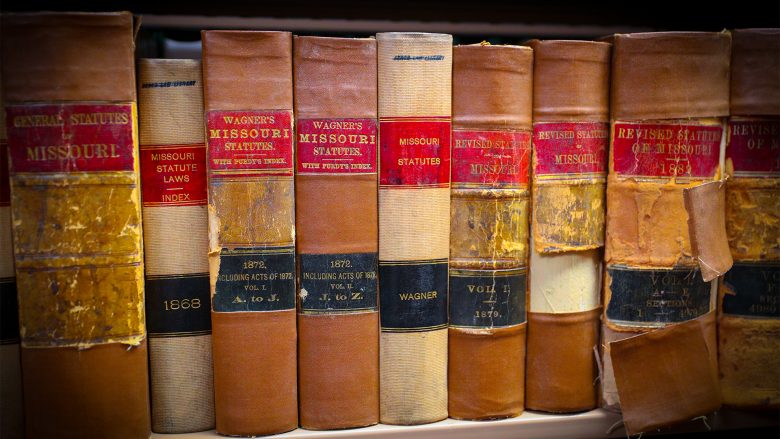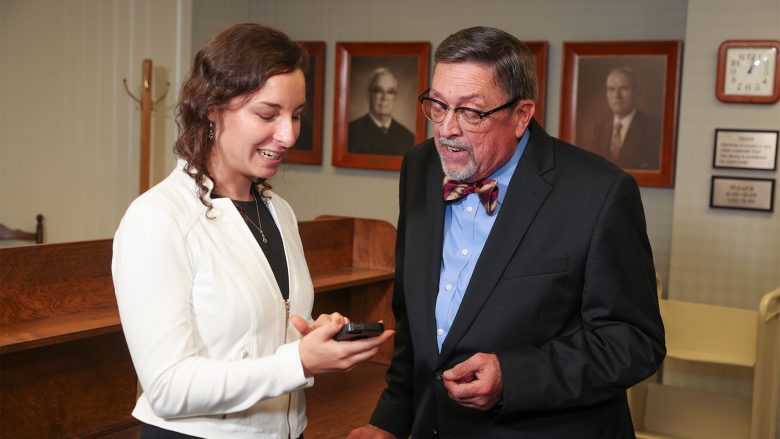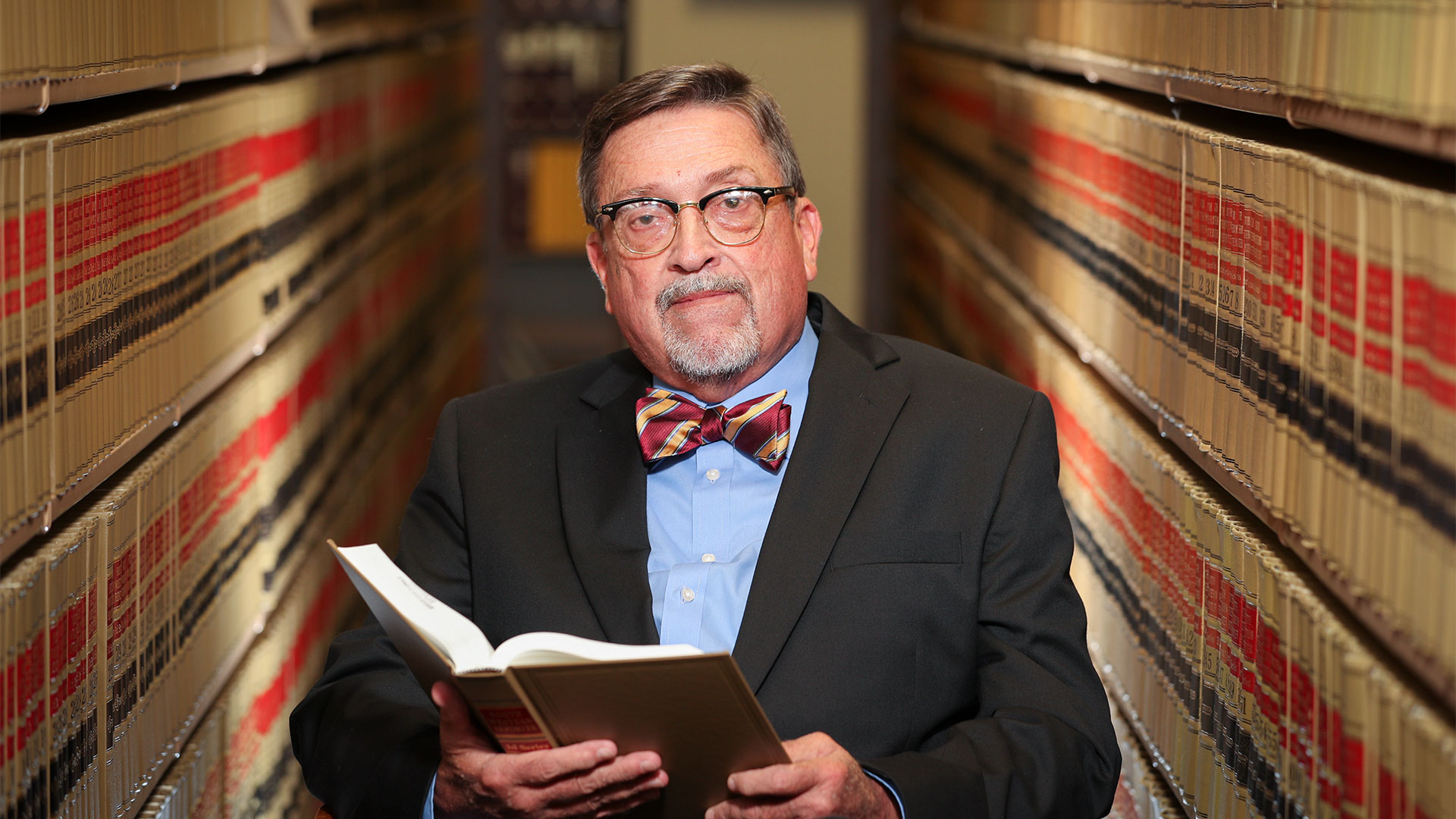Dr. Stanley Leasure’s work may give you one more thing to consider when you sign an employment contract or read the employee handbook. What happens when something goes wrong?
Probably no more than five percent of the lawyers teaching at law school have anywhere near 25 years experience.
“Many big companies want to limit your ability to sue them – of course they do,” Leasure said. “It’s messy and expensive. But more than that, it’s an exhibition that they don’t want.”
Leasure, a business law professor, was a partner in an Arkansas law firm for more than 25 years before joining the Missouri State University faculty. His interest in alternative dispute resolution – like arbitration, negotiation and mediation – began there.
Now he studies cases and rulings to deduce how the courts interpret the Federal Arbitration Act. He publishes articles on the precedents set forth and the discrepancies he sees. His work has influenced several court decisions. It has even been cited by attorneys appearing in the U.S. Supreme Court.
Arbitrators decide your future
Every day, more companies are placing clauses in their employment contract or employee handbook that state litigation is not an option in case a dispute arises. Instead, companies prefer – and are requiring the use of – arbitration.
Why arbitration? Because it is less costly, it’s conducted in private and it’s usually much quicker.
An arbitrator’s decision is considered final, legal and binding. Leasure is trying to influence how and when attorneys should be able to appeal the decisions.
“Who gets to decide? When are parties bound by an arbitration agreement? What issues are covered by the agreement? These are some of the questions I’m asking,” he said.

Pandora’s box
When the Federal Arbitration Act passed in 1925, it contained a few circumstances when an arbitrator’s decision could be overturned in court. Since then, more and more people dissatisfied with an arbitrator’s decision appeal to federal court.
Legal scholars have a unique ability to affect the development of the law.
“This is where Pandora’s box is really flung open,” Leasure said.
Courts interpret the nuances of those original exceptions differently. And several have expanded the exceptions beyond those in the Federal Arbitration Act.
While the courts have moved to revert to the original exceptions, some of the newer exceptions are still in play. Until all of the additions have been removed, Leasure expects more cases to make their way through the appeals process.
“It’s unsettled,” Leasure said, but it gives him great inspiration for future studies.

Finding inspiration
Besides reading the latest literature, Leasure scours Twitter for hot topics.
Sometimes he approaches his high-achieving students about collaborating on a research project. It’s a virtual collaboration since he primarily teaches online courses. But students like Ariel Kiefer considered it a great experience.
“Dr. Leasure helped me explore a topic and let me have a substantial part in researching and framing the article,” said Kiefer, a 2015 MSU graduate. “The skills I learned with his guidance were a great help in law school.”
Leasure agrees. Collaborating with his students can accelerate research projects. Ultimately, that means he’s influencing the interpretation of the law in two ways at once.
“I’m getting my viewpoint in front of attorneys and judges in these articles, and they are citing our articles in their decisions,” he said. “I’m also coloring the way my students see these dispute resolutions. And they are taking that into their future careers – law or otherwise.”
[byline story=”Nicki Donnelson” photo=”Kevin White”]
[cta text=”Read one of his articles” url=”https://lawrepository.ualr.edu/cgi/viewcontent.cgi?article=1113&context=lawreview”]

